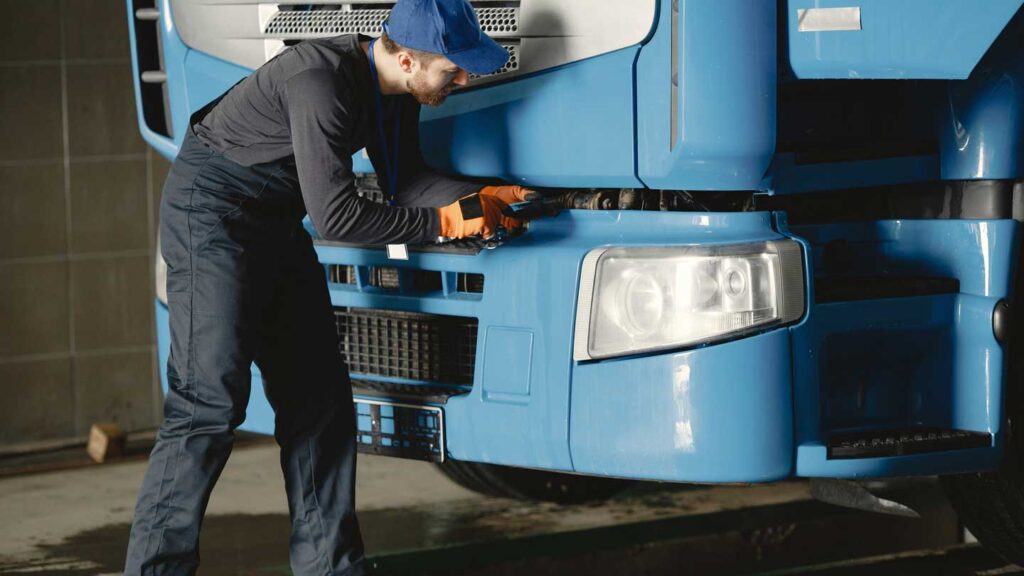Professional truck drivers must have a thorough understanding of traffic laws. The trucking industry in the United States is governed by the Department of Transportation (DOT).
The safety of drivers and the avoidance of fines may benefit from familiarity with DOT rules. What every truck driver should know about DOT rules is included in this essay. Continue reading before you look for Colorado truck permits.
Hours of Service (HOS) Regulations
The Hours of Service (HOS) restrictions are among the essential DOT rules. The Hours of Service (HOS) standards set maximum daily driving times and require periodic breaks for drivers. Current HOS laws provide a 30-minute break per eight hours of driving, allowing drivers to log up to 11 hours behind the wheel in 24 hours.
These rules aim to keep drivers awake and attentive while on the road. According to scientific studies, drowsy driving is as deadly as drunk driving. Drivers who break the HOS restrictions risk losing their commercial driver’s license and paying steep penalties.
Truck drivers must meticulously log their shifts behind and in the cab. Commercial motor vehicles must now install electronic logging devices (ELDs) to track and record driver service time. Safe driving and financial savings are both possible when drivers observe HOS rules.
Vehicle Maintenance Regulations
Truck drivers must also keep their vehicles in good working order per DOT guidelines. Trucks must often be inspected, maintained, and repaired to ensure their continued safe operation. Pre-trip checks are a mandatory part of complying with Department of Transportation requirements.
The brakes, lights, tires, and other safety features will be examined during these checks. The safe functioning of the vehicle depends on fixing any issues as soon as possible. Drivers are responsible for keeping meticulous records of vehicle repairs and inspections.
The DOT requires that these documents be retained for at least a year and be made accessible for review by authorized personnel. A commercial driver’s license may be suspended or revoked for severe violations of vehicle maintenance laws.
Commercial Driver’s License (CDL) Requirements
Commercial motor vehicle operators are required by law to have a Commercial Driver’s License (CDL). The Department of Transportation (DOT) determines what testing is necessary to get a commercial driver’s license (CDL). CDL-holders are also subject to DOT’s drug and alcohol testing requirements.
All CDL holders are subject to random drug and alcohol testing. We do pre-employment, random, and post-accident drug testing on all drivers. Prescribed and over-the-counter drugs are subject to stringent rules imposed by the DOT.
CDL holders are expected to drive safely and by all applicable laws. The driver’s CDL might be suspended or revoked if they accumulate too many points for moving infractions.
Weight and Size Regulations
The DOT has imposed weight and size restrictions to guarantee the safe operation of commercial motor vehicles. Both per-wheel and total-vehicle weight restrictions must be observed. The Department of Transportation also enforces size limitations for commercial motor vehicles.
Commercial motor vehicle size and weight restrictions are in place to protect infrastructure like highways and bridges from being damaged. Vehicles too heavy or too large for the road might damage the pavement and endanger other motorists.
Permits from the Colorado truck permits are required for driving with an excessively heavy or oversized vehicle. Drivers are responsible for obtaining all relevant permissions and adhering to any limits or special conditions. A vehicle’s safe and legal operation depends on the driver’s awareness of weight and size restrictions and compliance with all DOT requirements.
Hazardous Materials Regulations
The Department of Transportation (DOT) has issued rules outlining precise standards for safely handling and transporting hazardous items by truck drivers. Labeling, packaging, and contingency plans all fall under this category of laws.
Conclusion
Truck drivers must be well-versed in the DOT’s rules and regulations. Driving time is restricted by HOS rules to reduce driver tiredness, and vehicles are kept in safe operating conditions under maintenance rules.
Weight and size standards assure safe operation on the road, while CDL requirements provide the benchmark for safe and responsible driving. If you don’t follow DOT rules, you might lose your CDL and pay a substantial fine.
Drivers may protect themselves and other road users from harm and avoid expensive penalties by familiarizing themselves with and adhering to DOT laws.


